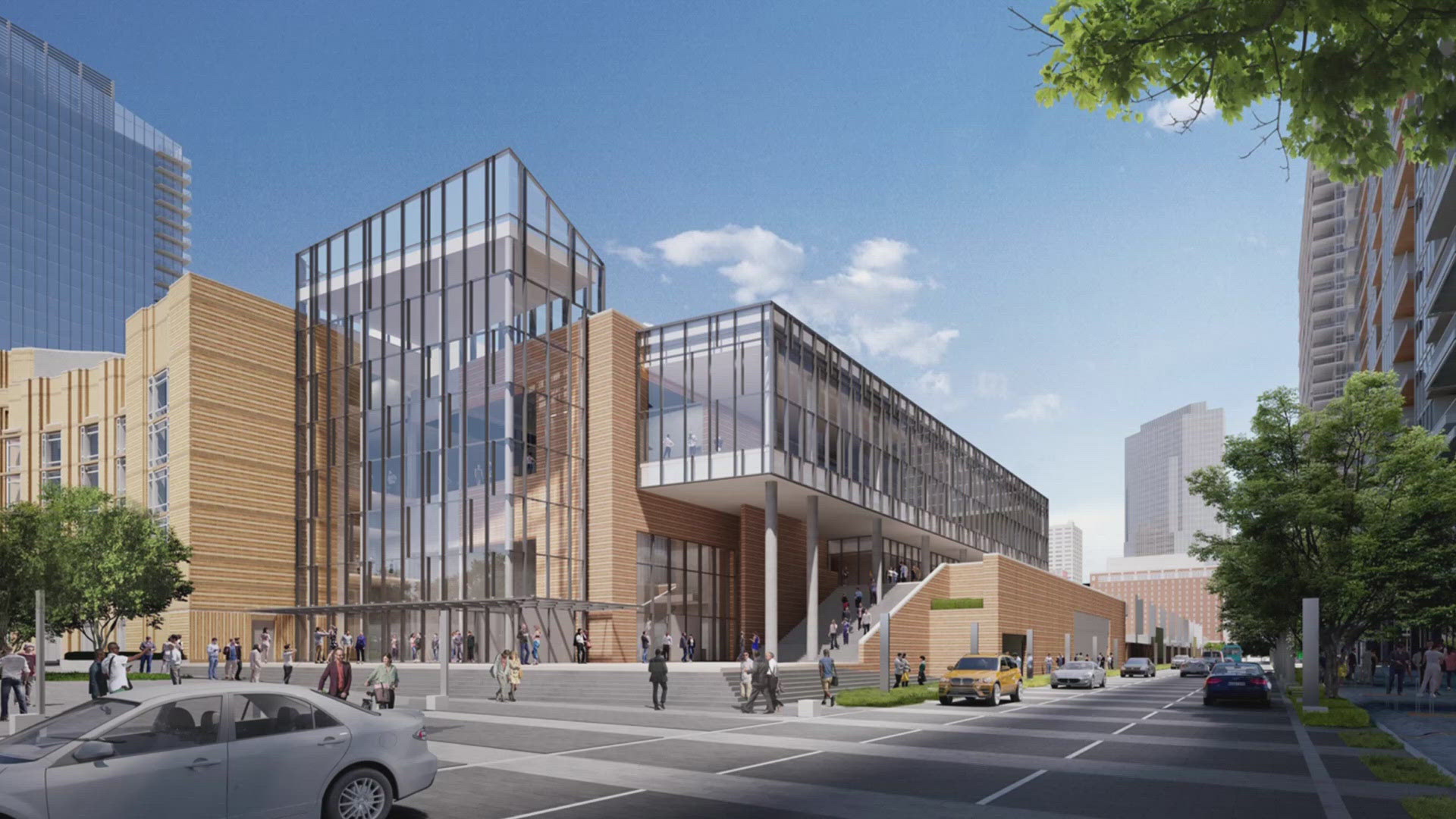FORT WORTH, Texas — This story was originally published by our content partners at the Dallas Business Journal. You can read the original article here.
As Fort Worth completes a construction milestone of its convention center, city officials and one of the companies managing construction say they hope to "level up" the building to help attract new convention business to the city.
In early August, the construction team behind the project placed the highest structural beam for the convention center's $95 million first phase, a step known as topping out. Now, leaders from the public and private sectors have shared more details about the strategy behind the expansion and the construction process.
Mike Crum, director of the public events department at the City of Fort Worth, said the city was ready to pull the trigger on expansion in 2020, but the start of the Covid-19 pandemic put the project back on the shelf because it was funded with hospitality tax revenue. But the injection of $52 million in American Rescue Act funds brought the project back to life. All in all, the project is estimated to cost around $700 million. Voters in May approved a hospitality tax increase to help finance the expansion.
The first phase, which is ongoing, will include a new southeast entrance, new food and beverage facilities, demolition of the annex to double loading docks and realignment of Commerce Street to create a site pad for a future convention hotel. The goal, Crum said, isn't necessarily to be competitive with other major cities such as Dallas, which is expanding and rebuilding its convention center. It's to "level up" to be able to attract new conferences. The convention center was last updated in 2003.
"Our bread and butter is state association business," Crum said. "Texas is a big state, huge population, big associations. So that's not bad business to go after, but our market has the potential to do more. And so what we expect is that we'll continue to work with the state meetings market, but instead of doing one meeting at a time, we'll be able to do two."
Crum also said the expansion will make Fort Worth one of the biggest players in the southwestern meetings market, and tap into the national meetings calendar on a more frequent basis.
Fort Worth Convention Center to stay open during expansion
Other major Texas cities — such as Dallas, Houston and Austin — are also undergoing their own expansion projects. What's different about Fort Worth's plans, Crum said, is that the city is keeping the center open while it's doing renovating, across two phases. AECOM Hunt, Byrne Construction Services and E.J. Smith Construction fill the role of construction manager at risk for the first phase.
Monte Thurmond, executive vice president and south division manager at AECOM Hunt, said construction teams are focusing on enclosing the structure that's been topped out and preparing interior spaces. He estimates the first phase will be finished by early 2026, and said the project is about keeping up with the city's overall population growth and its growing downtown.
"It's really all about preparing for their future and taking that focal building and creating a space today that just doesn't exist and prepare for the future," he said.
Corissa Smith, AECOM Hunt's executive vice president for national vertical markets including convention centers, said Fort Worth fits in with a trend of cities experiencing a huge post-Covid rebound in people traveling, spending and hosting events, driving efforts to revamp convention centers. Part of modernizing a convention center is removing space that's not functional anymore, such as an arena, and replacing it with more usable space for modern convention shows, she said.
There's also a renovation component to the projects. For example, the southeast entrance of Fort Worth's convention center is getting a makeover that brings in more natural light.
"Once you expand and make a beautiful new addition to your building, of course, the existing inventory just looks that much more dated," Smith said. "Oftentimes, with expansions comes renovations to really give the rest of the building a facelift so that all of the spaces have continuity of look and feel for the shows."
One of the biggest challenges with the project, Thurmond said, is old infrastructure. With any older building, he said, there are utilities that haven't been documented. They have to make protocols and work with the city to handle unexpected finds such as sewer and electrical lines, he said. Smith added that they also have to coordinate with show organizers on which parts and entrances of the building they will use while construction occurs.
"Every day is a new challenge, because every day the circumstances change as to who's in the building, how they get to the building, what we're doing in the building, how the construction is advancing," Smith said. "It's like a giant puzzle to be solved."
The second phase of the convention center is still in planning and will cost an estimated $606 million. Part of the second phase will involve demolishing the saucer-shaped arena at the north end of the building and adding a new exhibit hall. Crum said the design and planning work will start in 2025.

